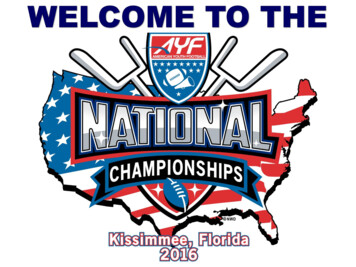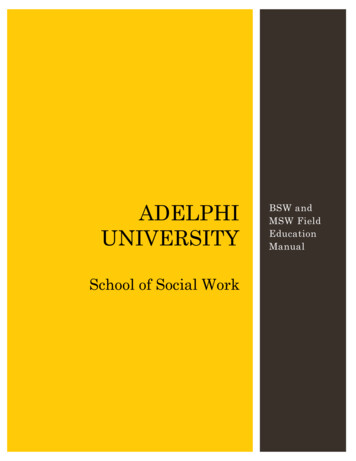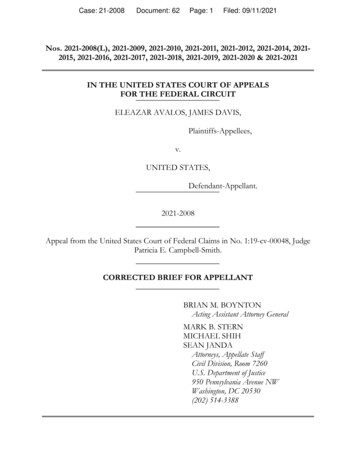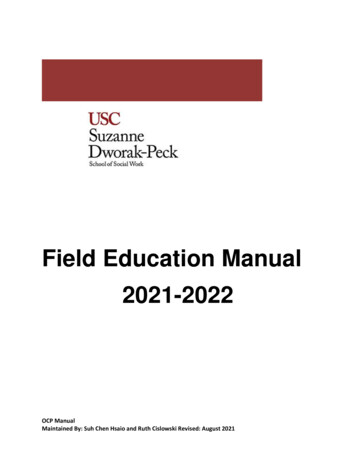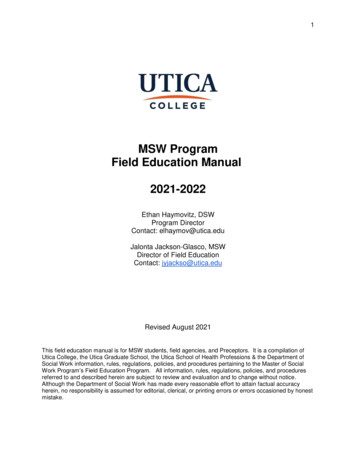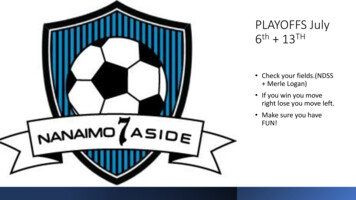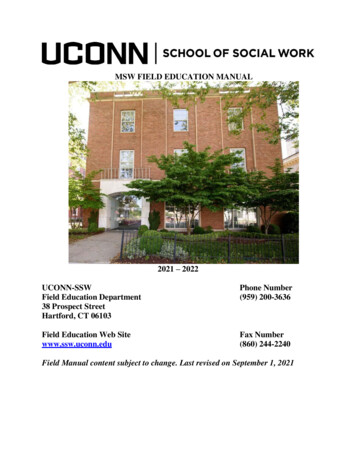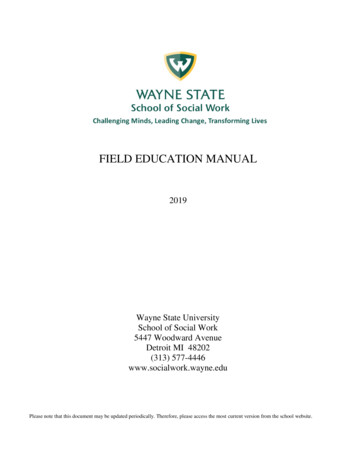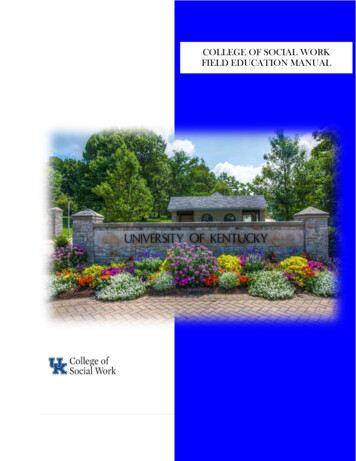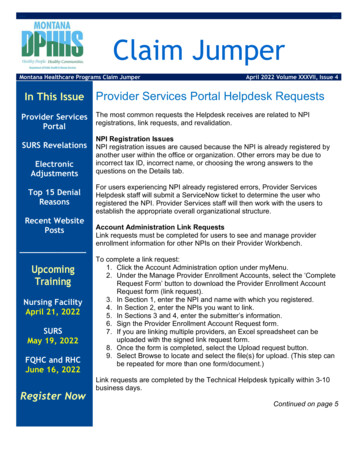
Transcription
Field Education Manual2021-2022VAC ManualMaintained By: Suh Chen Hsaio and Ruth Cislowski Revised: August 2021
ATTENTION: The Suzanne Dworak-Peck School of Social Work fullyadheres to the School’s and the university’s policies and protocols.All MSW Students are expected to review, understand, and complywith the policies and protocols included in SCampus, USC Policies,Current Student Website, USC Suzanne Dworak-Peck School of SocialWork MSW Policies and Procedures, and VAC Field EducationManual.VAC ManualMaintained By: Suh Chen Hsaio and Ruth Cislowski Revised: August 2021
VIRTUAL ACADEMIC CENTER FIELD EDUCATION MANUALUSC SUZANNE DWORAK-PECK SCHOOL OF SOCIAL WORKTable of ContentsWELCOME – Director of Field EducationI.II.III.IV.V.FIELD EDUCATIONA.Objectives of Field EducationB.Program OverviewC.Campus LocationsD.VAC Administration / Field Faculty / StaffE.Field Agency SitesF.Field Education RequirementsCourse WorkField InternshipEvaluation/GradingField InstructionEvidence-Based Intervention TrainingMalpractice InsuranceG.Field Education RolesH.Field Placement ProcessI.Field CalendarJ.TransportationSTUDENT / MSW CANDIDATE INFORMATIONA.IntroductionB.Field PlacementField Education and EmploymentC.Department Change ProcessD.Student Tasks & ResponsibilitiesE.SupervisionF.Safety and Risk ManagementG.Challenges and SupportH.Professional ExpectationsI.Social MediaFIELD INSTRUCTOR INFORMATIONA.IntroductionB.Field Instructor QualificationsC.Field Instructor Tasks & ResponsibilitiesD.Field InstructionE.Challenges and SupportF.Safety and Risk ManagementG.Field Internship Interruption and Strike PolicyFAILURE TO MAKE SATISFACTORY PROGRESS IN FIELD EDUCATION – ACADEMICWARNINGSA. Level I – First Academic Warning – Student Performance Improvement PlanB. Level II – Second Academic Warning – Failure To ImproveC. Level III – Dismissal and Appeal ProcedureD. Students Terminated or Dismissed from Placement Agency or OrganizationE. Grounds for Dismissal from the MSW ProgramAPPENDIX (LIST OF 92121222323242424252727282930303131323234
3WELCOMEAs the Director of Field Education, I welcome students and Field Instructors who are engaged inthe interactive process of teaching and learning about the practice of professional social work inthe real world. Field Education is committed to providing opportunities for our students todevelop skills in the most current practices, particularly in evidence-based interventions, and toreceive supervision by the finest Field Instructors in the country.This Field Education Manual is designed to provide general information and guidance aboutField Education and the Field Practicum to students and Field Instructors at both at both ofour Academic Centers (AC) - the On Campus Program (OCP) and the VirtualAcademic Center (VAC).Individual and specific questions are encouraged and can be directed to those field faculty whoare assigned to each student as Field Faculty Liaisons at each Academic Center. If therecontinues to be a concern, then the advisor/liaison can contact the Associate Director of FieldEducation for further discussion. The roles of the Director, the Associate Director, the RegionalDirectors, and the Faculty are to provide our students as much support as possible in theprocess of integrating theory with practice.Field Education is the “Heart of Social Work” and we want to provide an experience for eachstudent that represents the reality of professional social work practitioners and agencies today.The experiences in the Field Practicum can evoke a range of reactions and like the challengesin our communities, the process of learning in the Field is dynamic and complex. You mayconfront difficult situations and dilemmas in the first few months. With early and opencommunication and good collaborative problem solving, the learning during the academic yearwill be profound and life changing,I extend my thanks and best regards to students and Field Instructors for beginning a life longjourney of learning, self-discovery and transformation.Ruth Supranovich, EdD, LCSWDirector of Field Education
4I. FIELD EDUCATIONField Education is an independent and integral sequence of the MSW curriculum. Students areexposed to selected and organized opportunities guided by the Educational Policy andEducational Standards (EPAS) and the nine Core Competencies of the Council on Social WorkEducation (CSWE). Field is the signature pedagogy of Social Work Education. Field Educationseeks to validate, apply, and integrate the knowledge, theories, and concepts of social workpractice learned throughout the curriculum. Field agencies are expected to provide "in vivo"experiences relevant to the academic content. The student is expected to apply academicknowledge, social work skills, critical thinking, professional behavior, ethics and values learnedin the classroom to direct practice work.In order for integration of learning to occur concurrently in field sites and in the classroom,the agency and the School need to collaborate closely. USC administrators, professors andField Faculty Liaisons partner with agency field instructors to foster comprehensive andhigh-quality social work education and training. The collaboration teaches and guidesstudents to practice with cultural humility and to abide by professional social work behavior,values, and code of ethics. This culturally responsive approach helps prepare students topractice social work with diverse populations and to take on leadership roles within theprofession.A.Objectives of Field EducationField Education prepares students to enter the social work profession by meeting the followingobjectives: To integrate academic learning with all levels of field work (micro, mezzo, macro). To achieve proficiency in the required competencies for social work education as itrelates to field work.The 2015 CSWE Social Work Competencies are as follows:1. Demonstrate Ethical and Professional Behavior2. Engage Diversity and Difference in Practice3. Advance Human Rights and Social, Economic, and Environmental Justice4. Engage in Practice-Informed Research and Research-Informed Practice5. Engage in Policy Practice6. Engage with Individuals, Families, Groups, Organizations, and Communities7. Assess Individuals, Families, Groups, Organizations, and Communities8. Intervene with Individuals, Families, Groups, Organizations, and Communities9. Evaluate Practice with Individuals, Families, Groups, Organizations, andCommunities Develop the ability to understand and utilize a broad range of modalities andinterventions in micro, mezzo, and macro practice with diverse populations. Focus on building the knowledge for generalist practice in the 1st semester to establisha broad foundation for direct practice work. Develop a deeper knowledge and depth of skills needed for beginning professionalpractice in a designated Department of Study in the 2nd, 3rd, and 4th semesters.
5B.Program OverviewThe USC Suzanne Dworak-Peck School of Social Work is a highly ranked social work graduateprogram (U.S. News and World Report) in the country. It has the largest full-time Master ofSocial Work (MSW) program in the country and is ranked as a level one research school. Weoffer opportunities for students to select from a four-semester, six-semester, or an advancedstanding program. The regular standing MSW degree requires the completion of a minimum of60 semester units, including four semesters of Field Internship. Students must commit to aminimum of at least one eight-hour day (a maximum of 10 hours with prior faculty approval)during regular business hours (Monday-Friday, 8am-5pm) at an approved agency site.Highlights of the Program: Four-semester, six-semester, or advanced standing options enabling students to finishon their timetable A choice of academic centers: OCP or VAC A choice of three Departments of Study and department specific tracks Dual degree programs (OCP only) A variety of department specific electives Field Internships assigned according to students’ learning needs and educational goalsQuick Facts:Degree Programs Master of Social Work Master of Science in Nursing/Family Nurse Practitioner (VAC) Doctor of Philosophy Doctor of Social Work MSW/PhD (OCP only)Departments of Study Adult Mental Health and Wellness (AMHW) Children, Youth and Families (CYF) Social Change and Innovation (SCI) Note that each Department of Study offers its own specific track of study (i.e.Military, Social Work in Schools, etc.) that will require completion of specificelective courses.Dual Degree Programs (OCP only) Master of Social Work/Juris Doctor Master of Social Work/Master of Business Administration Master of Social Work/Master of Science in Gerontology Master of Social Work/Master of Arts in Jewish Nonprofit Management Master of Social Work/Master of Planning Master of Social Work/Master of Public Administration Master of Social Work/Master of Public Health Master of Social Work/Doctor of Philosophy
6C.Campus LocationsUniversity Park Campus (OCP)Montgomery Ross Fisher Building669 W. 34th StreetLos Angeles, CA 90089-0411213.740.2711Virtual Academic Center (VAC)https://msw.usc.edu/about/877.700.4MSW (4679)D.VAC Field Administration / Field Faculty / StaffAdministrationRuth SupranovichClinical Associate ProfessorDirector of Field EducationCYF Department213.740.2005supranov@usc.eduSuh Chen HsiaoClinical Associate ProfessorAssociate Director of Field EducationAMHW Department213.821.0970shuhsiao@usc.eduRuth CislowskiClinical Associate ProfessorField Education Regional Director, Southern CaliforniaSCI Department310.848.3470cislowsk@usc.eduStephen HydonClinical ProfessorDirector, Social Work in Schools/PPSC ProgramsCYF Department213.740.0282hydon@usc.eduTerri LeeClinical Associate ProfessorField Education Regional Director, North RegionSCI Department847.533.7939terri@usc.edu
7Omar LopezClinical ProfessorDirector, Workforce Development Stipend & Scholarship ProgramsCYF Department213.821.4040omarl@usc.eduCarolina Peralta-VenturaAssociate Director of Field Education & Telehealth OperationsField Education213.740.2005carolinp@usc.eduLisa Wobbe-VeitClinical Associate ProfessorField Education Regional Director, South RegionCYF Department321.217.4865wobbevei@usc.eduVAC Support StaffLorena GarciaContracts CoordinatorField Education213.821.0971garc919@usc.eduRebin ZanganaVAC Field Office Manager213.821.0914zangana@usc.eduJenny KimAdministrative Assistant II213.821.7057kim156@usc.eduKeisha LeeField Data Coordinator213.821.3634keishale@usc.eduRegional Field FacultyDanielle BrownClinical Associate ProfessorCYF Department512.420.7444brownde@usc.edu
8Laura CardinalClinical Associate ProfessorAMHW Department360.305.2345lcardina@usc.eduKerry DoyleClinical Associate ProfessorCYF Department401.580.7801kerrydoy@usc.eduPam FranzwaClinical Associate ProfessorAMHW Department630.207.6498franzwa@usc.eduSusan HessClinical Associate ProfessorCYF Department310.592.8706susanhes@usc.eduRenee MichelsenClinical Associate ProfessorAMHW Department973.970.9156michelse@usc.eduBrittani MorrisClinical Associate ProfessorAMHW Department213.342.1842brittanm@usc.eduJennifer PargaClinical Associate ProfessorSCI Department619.726.4235jparga@usc.eduMelissa SinghClinical Associate ProfessorSCI Department407.900.3235singhmi@usc.eduFor information on Adjunct Field Faculty please contact vacfield@usc.edu
9TelehealthSarah Caliboso-SotoClinical Assistant ProfessorClinical Director213.740.2711scalibos@usc.eduElizabeth PhillipsClinical Associate lth Support StaffKarla GomezProgram Assistant213.821.5820karlagom@usc.eduElias MartinezAdministrative Assistant I213.821.6889em 562@usc.eduE.Field Agency SitesThe Field Internship, also known as a student’s placement or applied learning in field education,takes place in USC Memorandum of Agreement (MOA) contract approved agencies locatedthroughout the country that represent a wide range of social work services and practice. Theseagencies are approved sites based on the quality of the professional practice, commitment toaddressing social problems and an interest to participate in the professional education of MSWstudents. The agency is responsible for providing the learning opportunities representative ofsocial work practice within the student’s region and/or community. They must subscribe to theUSC Suzanne Dworak-Peck School of Social Work educational objectives, the CSWE EPASand the nine core competencies.Note: MSW students are not allowed to identify nor secure their own field placement site butmay suggest potential sites for pre-approval processing.Field internship sites must treat the students as learners while providing the resources necessaryto meet their learning objectives. Unless officially approved by the USC Suzanne Dworak-PeckSchool of Social Work Field Faculty and Administration, students may not work at home duringthe placement hours. Hours worked at home without the express consent of the Field Instructorand assigned Field Faculty will not be counted as meeting the number of hours required for apassing grade.Note: Students cannot sign any agency “contracts” nor enter into any agreements that refute ornegate the provisions in the official agency/organization MOA with the USC Suzanne Dworak-
10Peck School of Social Work. This includes important policies regarding placement hours andeducational calendar events such as finals week.There are instances when an agency may not possess the resources to provide all the requiredlearning experiences. In such cases, a secondary placement site may be identified and usedfor the purpose of meeting the student’s learning objectives and accumulation of Field Internshiphours. A large multi-disciplinary placement agency site may also decide to broaden thestudent’s experience by rotating to different departments to expand learning opportunities. Inany of these options, the primary agency site carries the main responsibility for field instructionwhile the secondary site provides a Preceptor for supplemental supervision. All options must beexpressly pre-approved by the USC Suzanne Dworak-Peck School of Social Work Field Facultyand Administration prior to the start of the Field Internship or the hours will not be countedtoward the number required for a passing grade.The USC Suzanne Dworak-Peck School of Social Work welcomes agencies interested inpartnering as field placement sites. To qualify as a field placement site, an agency must meetthe following criteria: Provide a sufficient amount and variety of assignments to develop student knowledgeand practice skills. Provide an opportunity to work with individuals, families, groups, communities, andorganizations. Provide ample time for weekly field instruction to permit both individual and/or groupconferences with students. Provide adequate office space, office supplies, telephone availability, computer accessfor assigned tasks, and clerical support for the student to perform assigned duties. Provide opportunities for in-service training and access to agency consultants. Have an interest in participating in the student’s research. Have an interest in aligning the agency’s practice framework to theories taught in theclassroom.New agency sites must complete the Agency Qualifying Form (VAC) or the New AgencyInformation Packet (OCP) and a Memorandum of Agreement (MOA) approved by the USCLegal Counsel. An agency representative must also meet with a USC Field representative toevaluate the appropriateness of the site and for approval. This process typically takes three tosix months to complete.F.Field Education RequirementsApplied Learning in Field Education courses, which are the student’s Field Internship arerequired courses. The table below provides the sequential overview of the courses for eachsemester.Course WorkTable 1: Semester Course InformationField Education Courses (18 total units):Semester 1Semester 2Semester 3(3 Units)(5 Units)(5 Units) Advanced Applied Applied Learning in Applied Learning inLearning in FieldField EducationField EducationEducation (699a) –(589a) – 3 Units(589b) – 3 Units4 UnitsSemester 4(5 Units) Advanced AppliedLearning in FieldEducation (699b) –4 Units
11 Integrative Learningfor Social WorkPractice (588) –2 Units Integrative Learningfor Advanced SocialWork Practice(698a) – 1 Unit Integrative Learningfor Advanced SocialWork Practice(698b) – 1 UnitAll MSW students (not including Advanced Standing students) on the VAC must complete onesemester of Virtual Field Practicum (VFP, 589a) and three semesters of community-based fieldplacement (589b and 699a/b) by completing two semesters of Applied Learning in FieldEducation and two semesters of Advanced Applied Learning in Field Education as part ofgraduation requirements. All four courses must be completed sequentially as part of thegraduation requirements. All students enrolled in the second semester of Applied Learning inField Education (589b) and Advanced Applied Learning in Field Education (699a/b) shall attendthe corresponding Integrative Learning for Social Work Practice course as indicated in Table 1.Field Education courses are assigned a “Credit” or “No Credit” grade. Applied Learning in FieldEducation courses are taken concurrently with the corresponding Integrated Learning for SocialWork Practice courses.Field InternshipStudents must earn between 1,000 to 1,050 Field Internship hours. All Field Internship hoursmust be earned by completing the VFP (not including Advanced Standing students) andcompletion of an internship at a specific agency location assigned through the formal placementprocess. The first two semesters of field (589a-VFP and 589b) require the completion of aminimum of 450 hours and the third and fourth semesters (699a/b) require a minimum of 550hours. An exception is all students who are seeking to earn a California Pupil PersonnelServices Credential (PPSC) who must earn 600 hours in a school-based or affiliated placementthat meets the requirements set forth by the California Commission on Teacher Credentialing(CCTC). The Learning Agreement indicates the number of hours required for each semester inField Education. All MSW candidates must meet the minimum 1,000 Field Internship hours toearn their degree. Advanced Standing students complete only the field requirements for thethird and fourth semesters (699a/b).The criteria and objectives vary from each Department of Study with a more generalistexperience in the first semester of community-based placement to a more specializedexperience in the remaining semesters. Field placement days vary depending on the studentcourse schedule. The student will coordinate with the agency regarding the internship schedule.Field placement days are determined through a discussion between the agency and thestudent, with the requirement that there is at least one 8-hour day during regular businesshours. There is no exception to this policy. Evening and weekend hours are very limited or nonexistent in most communities. MSW supervision must be available to the student during fieldinternship hours.Note: Students may not work over 8 hours per day without prior USC faculty pre-approval norcan they work more than 32 hours per week. MSW students may not bank hours to end fieldinternship early nor can they credit hours from 589a to 589b or from 589b to 699a. FieldInstructors and students must adhere to the start and end dates of field internship as indicatedin the Field Calendar regardless of any excess hours earned each semester. Below arepotential exceptions to this policy: Internship extensions: Some agencies may require students to continue during thesemester breaks for continuity of care. Any extension must be indicated in the LearningAgreement. Make-up for missing hours: Any scheduled make-up hours must be completed beforethe add/drop date of the following semester.
12The agency, student, and the Field Faculty Liaison must have a discussion and pre-approve thisschedule early in each field internship. Any changes in internship requirements must be noted inthe Learning Agreement. Any changes in internship requirements after the initial learningagreement is completed must be made in writing and approved by the field instructor and by thefield liaison.Field Internship is assigned to all students in the VAC. Student’s refusal to participate in the fieldplacement process and in Field Internship will delay satisfactory academic progress and may bethe cause of a student’s inability to complete and graduate from the MSW program. MSWstudents are not allowed to identify or secure their own field placement site but may suggestpotential sites for pre-approval processing. This process takes 3-6 months to complete anddoes not guarantee the student will be placed at the suggested field agency site.Students are responsible for pre-placement contact with their placement agency. Pre-placementprocessing may take place prior to the start of the semester but should not exceed 8 hours perday nor can it exceed 32 hours per week. Although field agency sites may schedule preplacement processing before the community-based placement begins, they cannot be mademandatory due to students’ travel plans or permanent home addresses. Any pre-placementagency expectations must be agreed upon by the student and the appropriate field faculty. Ifthe student is unable to complete pre-placement requirements, the student and appropriate fieldfaculty member and agency personnel must determine how these students will be given anopportunity to make-up the pre-placement processing after semester starts.Students must make all efforts to complete agency required pre-placement processing, and anydelays in making initial agency contact or beginning the Field Internship on time is also thestudent’s responsibility. Students are also responsible for transportation to and from theirplacement site up to 30 miles in one direction from their place of residence. The School is notresponsible for any transportation costs incurred by the student (see Transportation on page 17for other transportation information).Evaluation/GradingApplied Learning in Field Education is a 3-unit course in the first two semesters of FieldInternship (589a/b) and Advanced Applied Learning in Field Education is a 4-unit course in thethird and fourth semesters of Field Internship. They are Credit/No Credit classes. The gradingis based on meeting all the requirements: (1) completion of required hours for each semester,(2) timely completion of the Learning Agreement, (3) timely completion of the required ReflectiveLearning Tools (RLTs, eight per semester), and (4) achievement of the CSWE Social WorkCompetencies as evidenced in a satisfactory end of semester evaluation. The student maycomplete all the hours but fail to achieve the Competencies, in which case the grade is a “NoCredit.” Conversely, the student may show promise in the Competencies but fail to completethe required hours. All four requirements must be met to pass the course and to earn a“Credit” grade.Note: Any grade of “In-Progress” or “No Credit” in Applied Learning in Field Education (589a/b)or Advanced Applied Learning in Field Education (699a/b) requires documentation such as anIn-Progress/Incomplete Form and/or a Student Performance Improvement Plan (SPIP).A Learning Agreement is completed at the beginning of VFP (589a) and community-basedplacement (589b, 699a, and 699b). Formal evaluations are also submitted at the end of eachsemester of internship. Field Instructors, students and Preceptors (if applicable) mustcollaborate when completing all required documents. Field placements are monitored by Field
13Faculty Liaisons through periodic agency or virtual meetings, student-Field Instructor meetings,telephone calls, and other contacts. Successful completion of the field internship requiresmeeting all the expected hours, obtaining satisfactory formal evaluation by meeting expectedgrowth in the CSWE Social Work Competencies and completing 8 Reflective Learning Toolsturned in weekly each semester while enrolled in each semester of Field Internship.Field InstructionField Instruction is provided by an individual who possesses an MSW and has at least two yearsof post-MSW agency experience. They must be approved by the USC Suzanne Dworak-PeckSchool of Social Work and certified to be a Field Instructor (see Section III.B on page 24). FieldInstruction takes place between the student and the Field Instructor in designated agencysettings that have been approved by the USC Suzanne Dworak-Peck School of Social Workand the University. An External Field Instructor (EFI) may be utilized if the agency does notemploy an MSW but wants to host an MSW Intern. The same requirements apply to all EFIs.There is a specific sequence of assignments, activities, and learning goals for Applied Learningin Field Education and Advanced Applied Learning in Field Education aligned with all othercourses in the School. The USC Suzanne Dworak-Peck School of Social Work and the agencycollaborate in assisting students to learn and increase their mastery of the CSWE Social WorkCompetencies. The Field Instruction process is conducted within the framework of a particularsocial work organization and is intentional, active, organized, sequential, and individualized.Over the course of four semesters of field internship, field instruction is expected to include butnot be limited to the following: Direct practice work with individuals, families, and related groups. Direct practice work focusing on groups, communities, organizations, and/or institutionalchange. A diversity of modalities, populations, and treatment delivered in the micro, mezzo, andmacro practice settings. A range of theoretical and teaching methodologies and models.Evidence-Based Intervention TrainingAll MSW candidates are required to complete trainings in three Evidence-Based Interventions.Motivational Interviewing, Problem Solving Therapy, and Cognitive Behavioral Therapy arecompleted either in the VFP or in the first field semester of the Advanced Standing program.Malpractice InsuranceAll students entering field placement are required to participate in the USC Suzanne DworakPeck School of Social Work’s malpractice insurance coverage. The malpractice insurance fee isincluded as part of the student’s commitment deposit. This plan covers students while they areenrolled in their community-based practicum. Copies of the Malpractice Certificate can beobtained from the Field Placement Team.G.Field Education RolesField education is a collaborative effort to provide a social work learning experience to studentsplaced in a designated agency. The collaboration consists of multiple professionals with distinctroles. The roles within field education are as follows:
14Director of Field Education:The Director of Field Education is a University administrator responsible for the developmentand continuity of the programs and policies of Field Education. This individual has overarchingauthority over all Field Education activities and functions, and is the direct supervisor of theAssociate Director, other field administrators/directors, and all full-time Field Faculty. TheDirector serves as the final arbiter for issues that cannot be resolved at the Associate Directorlevel.Associate Director of Field Education:The Associate Director of Field Education reports directly to the Director of Field Education. Thisrole isThey are responsible for the operational aspects of Field Education activities and is theinitial arbiter of any issues pertaining to Field Education. One Associate Director is assigned toOCP and the VAC.Program Directors (Workforce Development; School Social Work; Telehealth Clinic;Operations):The Program Directors report directly to the Director of Field Education. They are responsiblefor the operational aspects of the program and the initial arbiter of any issues pertaining to it.Regional Directors of Field Education:The Regional Field Directors provide administrative oversight for operational and programmaticinitiatives of Field Education in their respective regions. Their responsibilities include providingcomprehensive support to VAC students and field faculty, implementing Field procedures andprotocol, overseeing student review meetings, and serving as the initial contact and arbiters forstudent, Field Instructor, or agency issues. As direct reports to the Director of Field Education,they will represent Field Education at School events and ceremonies when conflicting demandsprevent the Director of Field and/or Associate Director from attendance.Field FacultyThis individual is a field faculty member who coordinates, monitors, evaluates, and documentsthe student’s field experience to ensure optimal learning and professional development. Theyalso provide consultation and assistance to the Field Instructor. They report directly to theDirector of Field Education and are expected to teach field courses, and complete administrativeassignments, as needed.Field Placement SpecialistThese individuals are staff members who are part of the Regional Field Placement Teams thatoversee the creation of new field agency partnerships and the placement of students in theirfield internship sites.Integrated Learning Instructor/ProfessorThis individual is a clinical field faculty member who facilitates the Integrative Learning for SocialWork Practice courses. They are also the student’s Field Faculty Liaison.MSW Student/InternThe designation of “intern” is often used to refer to the MSW student when they are placed in anagency and enrolled in the Field Practicum while completing courses to earn a Master of SocialWork degree.Field InstructorThis individual is a professional social worker and an agency representative assigned to provideweekly supervision and instruction to MS
Work MSW Policies and Procedures, and VAC Field Education Manual. . Master of Social Work/Juris Doctor . https://msw.usc.edu/about/ 877.700.4MSW (4679) D. VAC Field Administration / Field Faculty / Staff . Administration Ruth Supranovich Clinical Associate Professor .
